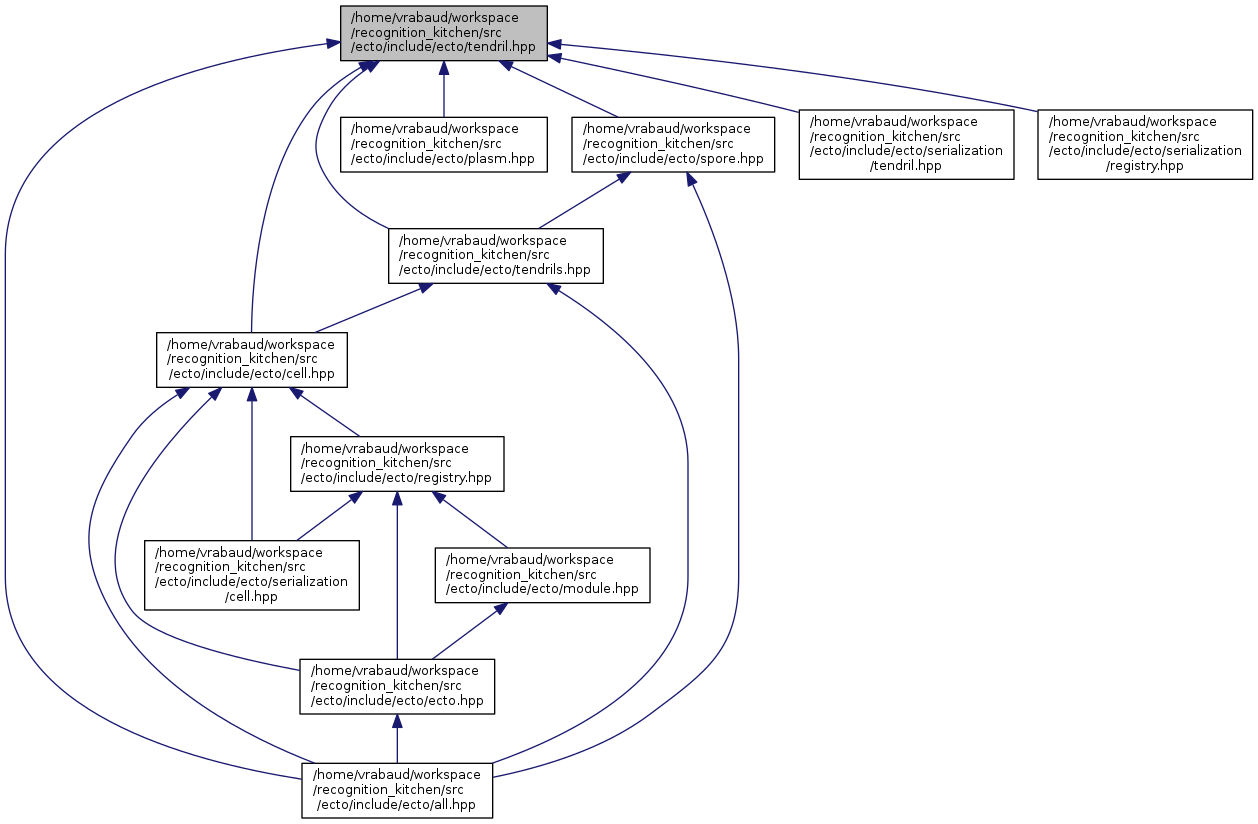|
ecto
|
|
ecto
|
#include <boost/shared_ptr.hpp>#include <boost/function/function1.hpp>#include <boost/signals2.hpp>#include <boost/any.hpp>#include <ecto/forward.hpp>#include <ecto/util.hpp>#include <ecto/except.hpp>#include <ecto/python.hpp>#include <ecto/python/repr.hpp>#include <vector>#include <string>#include <bitset>

Go to the source code of this file.
Classes | |
| struct | ecto::registry::tendril::entry< T > |
| class | ecto::tendril |
| A tendril is the slender, winding organ of the ecto::cell that gives it its awesome type erasure and uber flexibility. More... | |
| struct | ecto::tendril::empty_t |
| struct | ecto::tendril::none |
| A none type for tendril when the tendril is uninitialized. More... | |
| struct | ecto::tendril::Caller< T > |
| struct | ecto::tendril::Converter |
| struct | ecto::tendril::ConverterImpl< T, _ > |
| struct | ecto::tendril::ConverterImpl< none, _ > |
Namespaces | |
| ecto | |
| ecto::registry | |
| ecto::registry::tendril | |
Macros | |
| #define | BOOST_SIGNALS2_MAX_ARGS 3 |
Functions | |
| bool | ecto::registry::tendril::add (const ecto::tendril &t) |
| const ecto::tendril & | ecto::registry::tendril::get (const std::string &type_name) |
| std::vector< std::string > | ecto::registry::tendril::type_names () |
| template<typename T > | |
| tendril_ptr | ecto::make_tendril () |
| #define BOOST_SIGNALS2_MAX_ARGS 3 |
 1.8.11
1.8.11